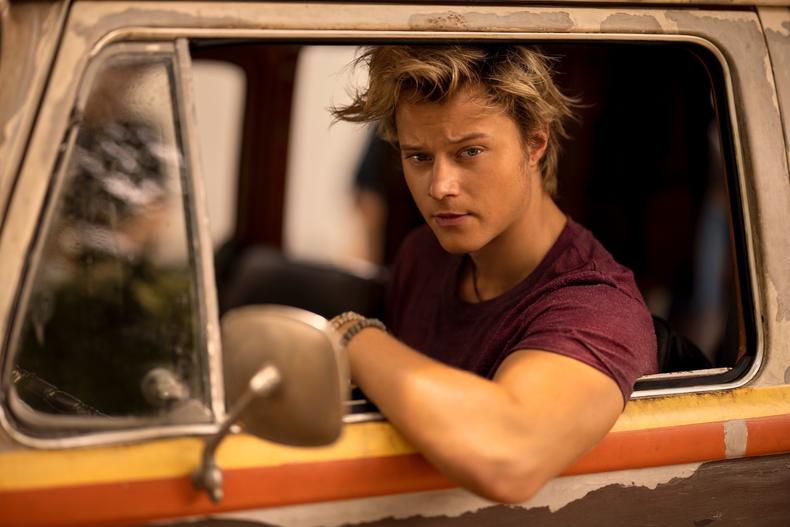
In the Envelope: The Actor’s Podcast features in-depth conversations with today’s most noteworthy actors and creators. Join host and senior editor Vinnie Mancuso for this guide to living the creative life from those who are doing it every day.
On this episode of In the Envelope: The Actor’s Podcast, Rudy Pankow discusses what he’s learned about the craft—and himself—from playing the rebellious JJ Maybank on Netflix’s hit series “Outer Banks.” He also dives into his upcoming star turn in “Romeo and Juliet” at the American Repertory Theater (opening Sept. 5), why aspiring performers need to seek out great writing, and how he envisions his career when “Outer Banks” eventually comes to an end.
There’s a line in “Romeo and Juliet” that cracked the performance for Pankow.
“That’s where great writing really does shine—once you actually can feel it, rather than think about it. There’s this specific line: ‘O brawling love! O loving hate! O any thing, of nothing first create!’ It’s the paradox: Why do we love to hate sometimes? Why are we arguing? At the end of the day, what are we really wanting? And what we’re wanting is to be loved. When Romeo says that line to Benvolio, he’s really laying it thick, asking, what are you actually fighting over? But that’s also what he’s asking himself.
That’s when it clicked. All of that self-exploration is so important for young generations. Shakespeare wrote a play about self-discovery…. He leaves you asking yourself these questions, like: Who am I? What do I stand for? What is actually important to me?”
He’s seen himself grow alongside his “Outer Banks” character.
“What’s so cool about shows is that the character evolves just as much as you do, especially when you’re around the same age as the character. I’ve been so fortunate to play a character who is asking himself the same questions, just like Romeo does. ‘What do I actually want out of this life?’ Coming-of-age stories—like ‘Outer Banks,’ like ‘Romeo and Juliet’—ask the question of what you want your life to be as an adult. Playing JJ has been the perfect template for that feeling. He starts out as this naive, run-and-gun rebel, and then he starts asking himself: Man, what happens when all these people grow up, leave this island, and I’m still here? That’s shown throughout the seasons, that he’s getting the anxiety of: This isn’t going to last forever.”

“Outer Banks” Credit: Jackson Lee Davis/Netflix
Pankow knows “Outer Banks” isn’t forever, either.
“I’m so thankful to be in this position…to be working on this craft with these characters. But I know that’s not going to last forever. I’m capable of trusting that it’s gonna be OK no matter how busy I am, or how not busy I am. This is what [acting coach Larry Moss] taught me: Go back to class; that audition’s coming. And the focus on when something’s over? That’s just as much of an opportunity. It’s the classic [idea of]: When one door closes, what then opens? That next door should always, always be what fascinates you with your craft. Ask yourself: What kind of person am I now? What stories do I want to tell? I think [figuring that out] is the duty of any artist. That’s the stuff that you should be focusing on, whenever you get a job and whenever a job ends. What is the thing to communicate to an audience that is important to tell?”